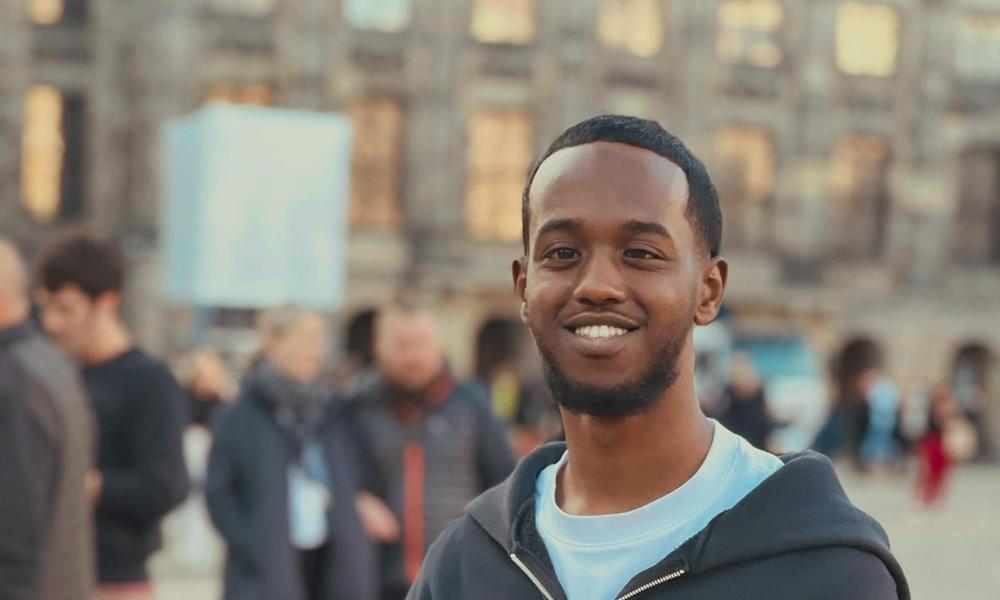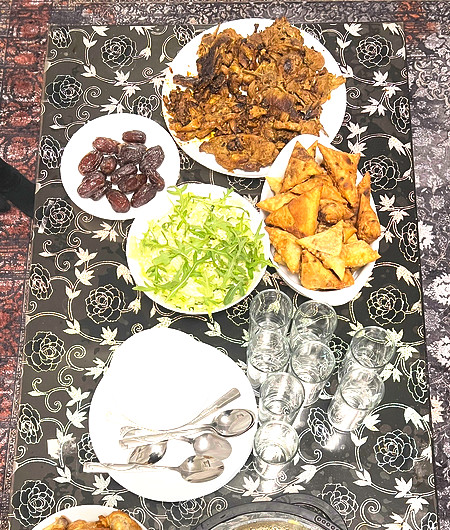Ibrahim Abdullahi: studying during Ramadan
- News


Fasting is one of the religious obligations of Islam. During Ramadan, fasting is done from sunrise to sunset. This year, Muslims will celebrate Ramadan from 1 to 29 March. Ibrahim Abdullahi, first-year IT student, is most looking forward to the togetherness and fraternisation during Ramadan. "The feeling that you really do it as a community gives me a lot of satisfaction."
Text: Loes Vader
Photos: Ibrahim Abdullahi
How do you feel?
"I feel good, actually no different than usual. Your body is used to fasting after a few days. It also getting easier and easier over the years. It is now my eighth Ramadan, I started when I was twelve. Back then it was more difficult. Now Ramadan falls in March, when I started it was in the summer."
What does Ramadan mean to you personally?
"For me, it's kind of a reset. A month in which I can relax and cleanse myself. By not eating and drinking, you think more clearly. Of course, it has religious benefits as well. I can focus better on what is important to me in life."
What do you find difficult during Ramadan?
"At the moment I don't find anything difficult. When I first started, I found the temptations of food more difficult. When I smelled cooking somewhere, for example, or when someone next to was eating me in class. But I haven't experienced that for a long time."
Can you concentrate on your studies?
"I did Ramadan at the end of primary school, secondary school and during secondary vocational education. Now it is tougher because the lessons at higher professional education are longer. I can now focus for about 40 minutes, then I start daydreaming a bit. The morning classes are not too bad, but the last few hours I have been functioning below my usual energy level."
What is your favourite time of the day?
"When I have broken my fast and I‘m on my way to the mosque. Then I get a kind of reality check. It feels like the perfect time of day."
How do you break the fast?
"Religiously, it is advisable to start with a date and a glass of water. After that, it varies from culture to culture. My roots are in Somalia. We eat a lot of rice, pasta and minced meat in puff pastry. My mother used to cook very extensively, now it’s a bit simpler. My brothers and sisters who have left home also come home if they can. It makes a difference whether you break the fast with three people or ten."
What is your favourite Ramadan dish?
"If you had asked me that a few years ago, I would answer: homemade pizza. Now it is often a bit simpler: a soup or rice with chicken."
Do you perform extra rituals during Ramadan?
"I always try to do the religious rituals, but during Ramadan they are extra important. I already read the Koran regularly, during Ramadan I try to do that more often. And I try to be very careful with my tongue and make sure that I don't swear."
What do you look forward to the most during Ramadan?
"To the togetherness and fraternisation, the feeling that you really do it together as a community, gives me a lot of satisfaction. Eid al-Fitr is also in sight, then we buy a new outfit to celebrate. Getting presents is more something for the children. I used to get them, now I give them."
Do you have any suggestions for non-believers or people of other faiths on how to deal with Muslims in this month?
"I don't have a problem at all with someone next to me eating something, but someone else might have trouble with that. Keep in mind that someone is not the same energetically as they normally would be. Finally, I would like to say that I am very happy with the prayer room at Hanze. That I can relax for five minutes and pray to God. I have not experienced that at other schools. Just great!"
You may also like to read: Nadine Hammami: studying during Ramadan
How satisfied are you with the information on this page?